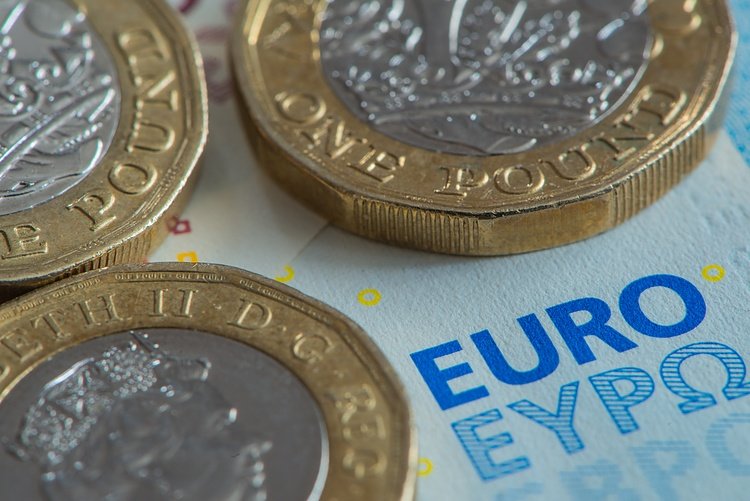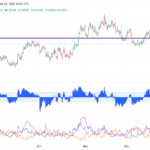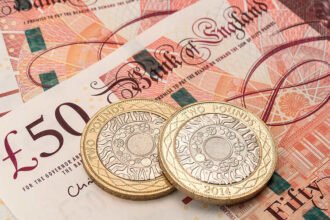- EUR/GBP gains traction to near 0.8380 in Friday’s early Asian session, up 0.11% on the day.
- The German HICP inflation remained steady at 1.8% YoY in September, as expected.
- The UK GDP expanded 0.2% MoM in August, matched estimates.
The EUR/GBP cross trades on a stronger note around 0.8380 on Friday during the early European trading hours. The Euro (EUR) remains firm after the release of German inflation data and UK growth numbers. Traders will shift their attention to the UK employment data next week.
Data released by Destatis on Friday showed that the German Harmonized Index of Consumer Prices (HICP) rose 1.8% YoY in September, compared to the previous reading and the expectations of 1.8%. The German inflation data continues to support the Euro, while investors were digesting the ECB’s cautious tone on economic growth.
The meeting account published on Thursday showed that the ECB remains confident that inflation is on track to hit the 2% target. The ECB policymakers see the cut rates by 25 basis points (bps) in September as appropriate due to disinflation and a fragile recovery.
The ECB signaled that any further policy easing would be gradual and data-dependent. The ECB is anticipated to cut the deposit rate to 3.5% next week. More than 90% of economists polled by Reuters expect a reduction next week, with a similar majority betting on a follow-up move in December.
On the UK’s front, the Office for National Statistics (ONS) showed on Friday that the UK economy grew by 0.2% over the month in August. The reading matched the market consensus of 0.2% growth in the reported period.
Meanwhile, further delay on rate cuts by the Bank of England (BoE) might cap the downside for the Pound Sterling (GBP) in the near term. The BoE chief economist Huw Pill warned against cutting the base rate “too far or too fast” last week. Investors expect the UK central bank to cut the rate by a total of 0.5% to 4.5% in two of its last three meetings before the end of the year.
Pound Sterling FAQs
The Pound Sterling (GBP) is the oldest currency in the world (886 AD) and the official currency of the United Kingdom. It is the fourth most traded unit for foreign exchange (FX) in the world, accounting for 12% of all transactions, averaging $630 billion a day, according to 2022 data. Its key trading pairs are GBP/USD, also known as ‘Cable’, which accounts for 11% of FX, GBP/JPY, or the ‘Dragon’ as it is known by traders (3%), and EUR/GBP (2%). The Pound Sterling is issued by the Bank of England (BoE).
The single most important factor influencing the value of the Pound Sterling is monetary policy decided by the Bank of England. The BoE bases its decisions on whether it has achieved its primary goal of “price stability” – a steady inflation rate of around 2%. Its primary tool for achieving this is the adjustment of interest rates. When inflation is too high, the BoE will try to rein it in by raising interest rates, making it more expensive for people and businesses to access credit. This is generally positive for GBP, as higher interest rates make the UK a more attractive place for global investors to park their money. When inflation falls too low it is a sign economic growth is slowing. In this scenario, the BoE will consider lowering interest rates to cheapen credit so businesses will borrow more to invest in growth-generating projects.
Data releases gauge the health of the economy and can impact the value of the Pound Sterling. Indicators such as GDP, Manufacturing and Services PMIs, and employment can all influence the direction of the GBP. A strong economy is good for Sterling. Not only does it attract more foreign investment but it may encourage the BoE to put up interest rates, which will directly strengthen GBP. Otherwise, if economic data is weak, the Pound Sterling is likely to fall.
Another significant data release for the Pound Sterling is the Trade Balance. This indicator measures the difference between what a country earns from its exports and what it spends on imports over a given period. If a country produces highly sought-after exports, its currency will benefit purely from the extra demand created from foreign buyers seeking to purchase these goods. Therefore, a positive net Trade Balance strengthens a currency and vice versa for a negative balance.





















